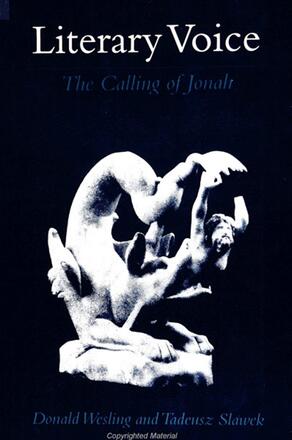
Literary Voice
The Calling of Jonah
Alternative formats available from:
This response to Derrida's critique of the spoken uses dozens of examples in four languages to explore the voice that is in writing.
Description
Jacques Derrida has ably analyzed the writing that is in speaking, but this reply to his work analyzes the speaking that is in writing. This book defends and illustrates literary voice against modern philosophy's critique of the spoken, and in the light of Mikhail Bakhtin's dialogism and Henri Meschonnic's studies on subjectivity in rhythmic language. The authors find literary voice to be maximal in bardic speech, where the author speaks for the nation. This full voice stands between the two minimums of the body (grunts and sighs and birdsong), and the material text (loss of logic, narrative, and social tones in Nietzsche and in the American LANGUAGE poets).
Donald Wesling is Professor of English Literature at the University of California, San Diego, Tadeusz Sawek is Professor of English Literature and Critical Theory at the English Institute, University of Silesia in Poland.
Reviews
"The work draws on poetry, on bardic traditions, on philosophy and linguistics, and on literary theory to develop a compelling argument for the value of 'literary voice.' ...the book stresses the social dimensions of literature, writing, and speaking. This emphasis carries political implications, especially for people whose voices have been ignored... So the book is about literary voice, about dialogues, about speaking subjects (historically situated), about 'exile,' and about the ethical implications of joining dialogues. Hence the importance of Jonah as a metaphor for resistance, language and dialogue." — Lloyd Kramer, University of North Carolina
"The authors cover a huge field of literary criticism and related fields, past and present, relevant to their concern with literary 'voice' and person. Thoroughly at home in post-post-modern criticism and in deconstruction, they are aware of other scholarly work which makes it possible to assess these traditions from the outside and to identify some of their shortfalls. This book opens new and challenging perspectives."—Walter J. Ong, Saint Louis University